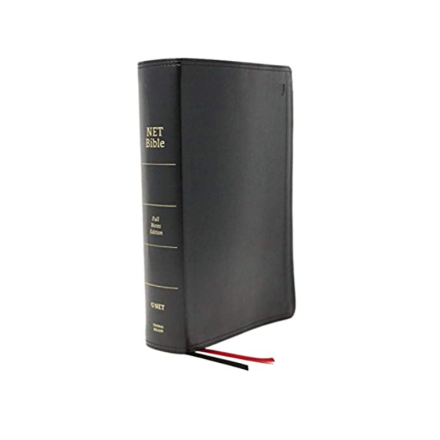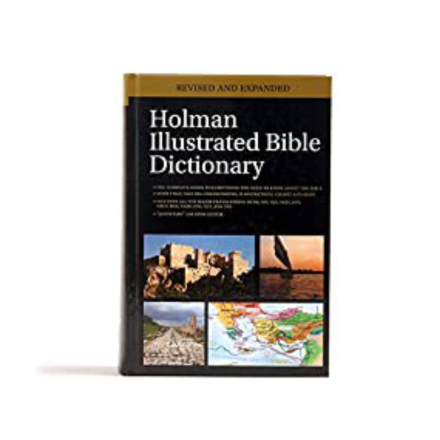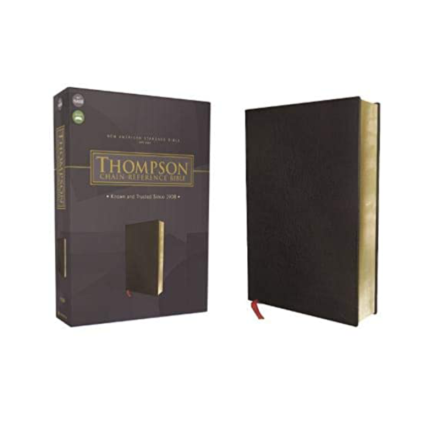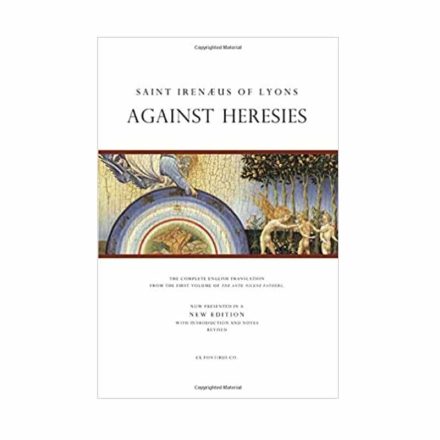Podcast (bible-study): Play in new window | Download | Embed
Subscribe: Apple Podcasts | Google Podcasts | Spotify | Amazon Music | Android | Pandora | iHeartRadio | Podchaser | Email | Deezer | RSS | More
Job’s Dark Night of the Soul in Job 3

A Moment of Silence
Job’s friends have come to be with him in his grief and sit with him in silence for seven days because saw his grief was “very great.” Whatever we think about his friends’ advice in later chapters, we should remember this. They were just there to comfort him by their presence, showing that they understood the depths of grief that he was experiencing.
When we have a “moment of silence” today, we are remembering a calamity, recognizing the impact of the loss. We are collectively entering into and sharing the grief of those affected. The Holocaust happened 80 years ago, but the people lost are still remembered. Every year on Yom HaShoah, life comes to a stop in Israel for two minutes of silence. There is a pause to remember.
We’re pretty bad at grief in the U.S. While we may not admit it, I think in the back of our mind we think that we are in control. That what we have is our own effort and that if something bad happens, there must be some sort of conspiracy. I think it’s because of this we have a hard time showing compassion for others, for entering into and sharing their grief. We also have a hard time accepting consolation from others because doing so would be acknowledging that we don’t have everything under our control.
We have bent much to our will and we do have much agency, but we’re still not God. Life will still happen. We would be better off if we remembered that and shared the grief of others.
The Dark Night of the Soul
Job’s friends are silent, they simply share his grief, until he is ready to talk. He has lost everything he owns, his health is gone, his wife (his “own flesh”) has cursed him, and now in chapter three as he begins his dialogue, we see that he is totally emptied spiritually. He is at his lowest point. This is the place where Job is at as we begin chapter three (NASB.)
Afterward Job opened his mouth and cursed the day of his birth. 2 And Job said,
3 “May the day on which I was to be born perish,
As well as the night which said, ‘A boy is conceived.’4 May that day be darkness;
May God above not care for it,
Nor light shine on it.5 May darkness and black gloom claim it;
May a cloud settle on it;
May the blackness of the day terrify it.6 As for that night, may darkness seize it;
May it not rejoice among the days of the year;
May it not come into the number of the months.7 Behold, may that night be barren;
May no joyful shout enter it.8 May those curse it who curse the day,
Who are prepared to disturb Leviathan.9 May the stars of its twilight be darkened;
May it wait for light but have none,
And may it not see the breaking dawn;10 Because it did not shut the opening of my mother’s womb,
Or hide trouble from my eyes.
This expression by Job is the negation of the divine decree at creation — “Let there be light,” and that was the first day. Job wishes that his first day be darkness.” As for that day, let there be darkness.” Since only God has this prerogative, Job adds the wish that God on high would not regard that day. (Job 3, note G[1])
Verse 5 is a curse on the day, the NASB translates it at “May darkness and black gloom claim it,” the NET as “Let darkness and the deepest shadow claim it.” Commentators have translated it as “deep darkness” or the “shadow of death.” (Job 3, note J)
But Job doesn’t end there, because he doesn’t seem to think his curses have enough force, he calls on those who make it their profession to curse the day. Again from the NET study Bible.
Those who curse the day are probably the professional enchanters and magicians who were thought to cast spells on days and overwhelm them with darkness and misfortune. The myths explained eclipses as the dragon throwing its folds around the sun and the moon, thus engulfing or swallowing the day and the night. This interpretation matches the parallelism better than the interpretation that says these are merely professional mourners (Job 3, Note N)[2]
The reference to Leviathan
Job employs here the mythological figure leviathan, the monster of the deep or chaos. Job wishes that such a creature of chaos could be summoned by the mourners to swallow up that day. (Job 3, Note W.)[3]
In the next section, Job compares the condition of the dead and thinks it’s preferable to his current state.
11 “Why did I not die at birth,
Come out of the womb and pass away?12 Why were the knees there in front of me,
And why the breasts, that I would nurse?13 For now I would have lain down and been quiet;
I would have slept then, I would have been at rest,14 With kings and counselors of the earth,
Who rebuilt ruins for themselves;15 Or with rulers who had gold,
Who were filling their houses with silver.16 Or like a miscarriage which is hidden, I would not exist,
As infants that never saw light.17 There the wicked cease from raging,
And there the weary are at rest.18 The prisoners are at ease together;
They do not hear the voice of the taskmaster.19 The small and the great are there,
And the slave is free from his master.
Job is describing what he believes to be the condition after death, where there is peace and rest. In the Hebrew Bible, this was referred to as Sheol, a place of waiting until the resurrection and the day of judgment.
In the next section, Job continues with his description of his current condition. He is in anguish and doesn’t see any way out.
20 “Why is light given to one burdened with grief,
And life to the bitter of soul,21 Who long for death, but there is none,
And dig for it more than for hidden treasures;22 Who are filled with jubilation,
And rejoice when they find the grave?23 Why is light given to a man whose way is hidden,
And whom God has shut off?24 For my groaning comes at the sight of my food,
And my cries pour out like water.25 For what I fear comes upon me,
And what I dread encounters me.26 I am not at ease, nor am I quiet,
And I am not at rest, but turmoil comes.”
Job is walking in darkness. The very worst that he could have imagined, “what [he] fears[s],” has happened and he can’t imagine how things could ever be better. He is asking, “What is the point of life” when one seems “shut off” from God?
This separateness, an apartness from God, is the description of evil. When Adam and Eve made the choice in the Garden to know both good and evil, they were choosing to know what life was like without God. As God is absolute goodness, evil is the lack of his presence. The only way Adam and Eve could know what evil was if they knew what it was like to be outside of God’s presence.
Job had been one to continually make sacrifices for his family, sanctifying the space under his authority so God’s presence was there. When Satan talked about a “hedge of protection” around Job, it was that God was with him. Job was a righteous man. He was used to God’s presence, and so his great physical losses, as well as the withdrawal of God’s presence to which he was accustomed, I’m sure made things particularly hard to bear.
The Dark Night of the Soul
What Job is experiencing is what is known as “the dark night of the soul.” Jeannie Ewing explains this spiritual condition as understood by St. John of the Cross.
A spiritual novice – a revert or new convert – may initially find him/herself immersed in the sweetness of spiritual consolations, tender affections, and even brief ecstasies or prophetic words. We seek signs from God, and we receive them. We long to feel Him close to our hearts, and He responds likewise. We ask for spiritual enlightenment, the gift to experience a supernatural phenomenon, and God may grant us these. This is a state of spiritual infancy, according to the theology of St. John of the Cross. When a person desires complete union with God, it is necessary that s/he must first enter into a period of time in which his/her senses are darkened, the intellect is clouded, and the will dies to itself.
The person may feel lost, alone, and completely mystified as to what direction s/he is taking in his/her interior life. When one prays, God remains mute. When one longs to feel His love and affection, s/he is met with a seemingly cold, sterile silence. There are no consolations, spiritual comforts, signs or supernatural responses. The person cannot comprehend this feeling of unknowing or isolation, a sense of being completely shrouded in nothingness. One faces the temptation to abandon one’s faith, to conclude that God does not exist – or if He does, in fact, exist, He is not a merciful and loving God.
Initially, a soul is plunged into this terrifying place of spiritual abandonment, and the soul weeps, as it cannot deny its pangs for God, the longings for sweetness, the memory of walking clearly in the path illuminated by God’s grace. The person’s entire being is swept into a state of confusion as the senses are being stripped of their ability to soothe or pacify one’s condition. The intellect is darkened, too, as former gifts of scholarly knowledge or theological understanding vanish and are instead replaced with disillusionment and unknowing. The heart’s affections and the soul’s faculties are equally vanquished, and so the person’s entire being is left with an inexplicable void.[4]
This emptiness, this feeling of without, is also known in Buddhism as nirvana. It is an elimination of self and all desires. But the difference between Buddhism, which sees the highest goal as the elimination of individual consciousness, and Christianity is that while both recognize this empty spiritual state, for the Christian it is not the end, but just a stage in the journey to wholeness. The promise of the gospel is not an elimination of who we are but a restoration … what Irenaeus of Lyons refers to as “recapitulation … of who we were made to be.
At times it is the darkness, the loneliness, that spurs us further towards that fellowship with God. At times, he withdraws so we will come closer. It may seem like we are in darkness, but we are close to the light breaking through. This “dark night of the soul” is the same place that David wrote when he wrote Psalm 88.
Psalm 88
O Lord, the God of my salvation,
I have cried out by day and in the night before You.
2 Let my prayer come before You;
Incline Your ear to my cry!3 For my soul has had enough troubles,
And my life has drawn near to Sheol.4 I am reckoned among those who go down to the pit;
I have become like a man without strength,
5 Forsaken among the dead,
Like the slain who lie in the grave,
Whom You remember no more,
And they are cut off from Your hand.6 You have put me in the lowest pit,
In dark places, in the depths.
7 Your wrath has rested upon me,
And You have afflicted me with all Your waves.8 You have removed my acquaintances far from me;
You have made me an object of loathing to them;
I am shut up and cannot go out.9 My eye has wasted away because of affliction;
I have called upon You every day, O Lord;
I have spread out my hands to You.10 Will You perform wonders for the dead?
Will the departed spirits rise and praise You?
11 Will Your lovingkindness be declared in the grave,
Your faithfulness in Abaddon?
12 Will Your wonders be made known in the darkness?
And Your righteousness in the land of forgetfulness?13 But I, O Lord, have cried out to You for help,
And in the morning my prayer comes before You.
14 O Lord, why do You reject my soul?
Why do You hide Your face from me?15 I was afflicted and about to die from my youth on;
I suffer Your terrors; I am overcome.
16 Your burning anger has passed over me;
Your terrors have destroyed me.17 They have surrounded me like water all day long;
They have encompassed me altogether.
18 You have removed lover and friend far from me;
My acquaintances are in darkness.
David felt the same way as Job, but he knew where to place his hope. Psalm 88 is a lament and a cry for help. However, David also knew how to put his faith in action. Psalm 23 is a psalm of spiritual warfare, one written while he was in the “shadow of death” or what Job would call the “deepest darkness.”
Psalm 23
The Lord is my shepherd,
I shall not want.
2 He makes me lie down in green pastures;
He leads me beside quiet waters.3 He restores my soul;
He guides me in the paths of righteousness
For His name’s sake.4 Even though I walk through the valley of the shadow of death,
I fear no evil, for You are with me;
Your rod and Your staff, they comfort me.5 You prepare a table before me in the presence of my enemies;
You have anointed my head with oil;
My cup overflows.6 Surely goodness and lovingkindness will follow me all the days of my life,
And I will dwell in the house of the Lord forever.
David is declaring his salvation in God while he is still in darkness. Sometimes in the darkness, all we can do is follow God’s voice. That is the reason we go through those time, because it forces us to rid of everything else and to put our trust in God alone. It has to be God and nothing else. David knew how to get there, but Job has a way to go in his spiritual journey.
This Bible study is part of A Study of Job (2021)
Endnotes
[1] NET Bible, Full-notes Edition. (Nashville, TN: Thomas Nelson, 2019).
[2] NET Bible, Full-notes Edition. (Nashville, TN: Thomas Nelson, 2019).
[3] NET Bible, Full-notes Edition. (Nashville, TN: Thomas Nelson, 2019).
[4] Jeannie Ewing, “St. John of the Cross & The Dark Night,” Catholic Exchange, last modified December 15, 2014, accessed June 4, 2021, https://catholicexchange.com/st-john-cross-dark-night.




